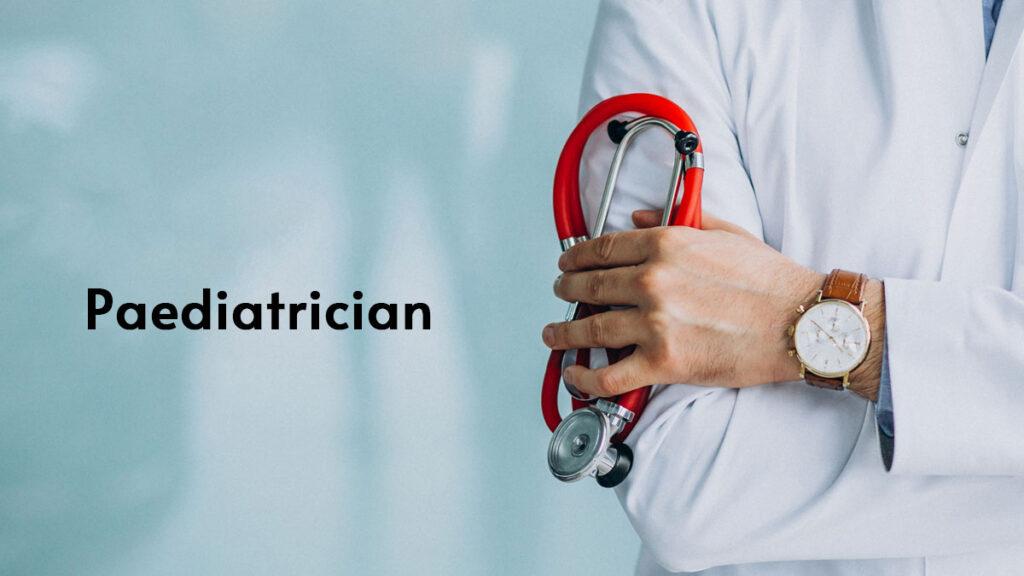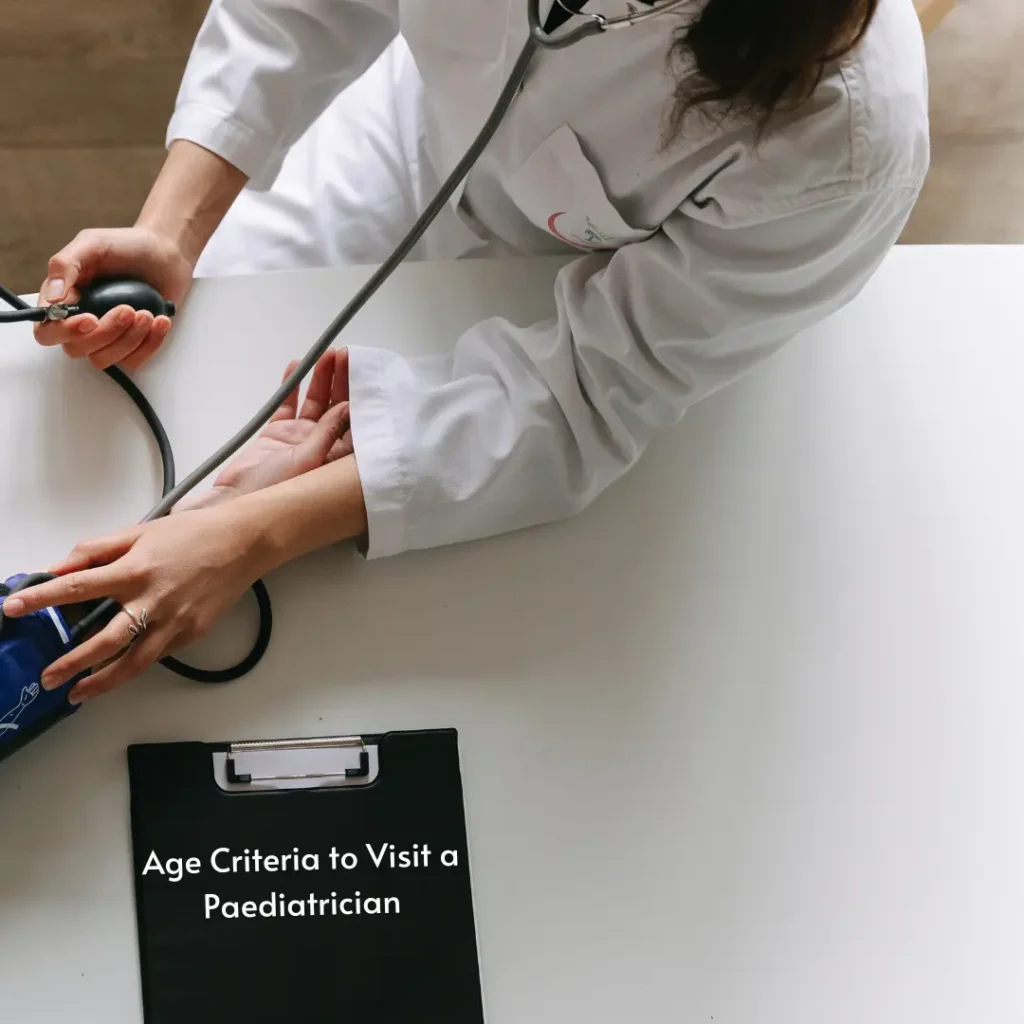
Care For Your little Ones: Experienced Paediatrician In Mohali
Table of Contents
ToggleWho Is a Paediatrician ?

A paediatrician, a medical doctor specializing in the care of infants, children, and adolescents, is often referred to as the “healer of children.” Their multifaceted role involves various aspects of healthcare for young individuals, focusing on the unique medical needs and developmental stages. Trained to diagnose, treat, and prevent childhood illnesses, paediatricians play a crucial role in promoting overall child health.
Role Of Paediatrician

1. Diagnosis and Treatment
Diagnosing and treating illnesses, infections, and injuries: Paediatricians play a crucial role in identifying and addressing a wide range of health issues that affect children. This includes common illnesses, infections, and injuries, with the aim of providing prompt and effective treatment.
Managing chronic conditions: Paediatricians are involved in the ongoing management of chronic medical conditions like asthma, diabetes, and allergies. They work closely with patients and their families to develop treatment plans, monitor symptoms, and adjust care as needed.
2. Preventive Care
Regular check-ups and well-child visits: Paediatricians conduct routine check-ups and well-child visits to monitor a child’s growth and development. These visits serve as opportunities to identify and address any health concerns early on.
Administering vaccinations and providing preventive advice: They are responsible for ensuring that children receive timely vaccinations to prevent various diseases. Additionally, they offer advice on preventive measures such as nutrition, safety practices, and other lifestyle factors that contribute to overall well-being.
3. Specialized Care
Collaborating with healthcare professionals: Paediatricians often collaborate with other healthcare specialists to provide comprehensive care for children with complex medical conditions or special needs. This interdisciplinary approach ensures that all aspects of a child’s health are addressed.
4. Developmental Monitoring
Paediatricians monitor the physical, mental, and emotional development of children by assessing developmental milestones. This involves tracking a child’s progress in areas such as motor skills, language development, and social interactions.
Identifying and addressing delays or concerns: If developmental delays or concerns are identified, paediatricians work with families to create intervention plans, which may include referrals to specialists for further evaluation and support.
5. Health Education
Guidance on nutrition, safety, and overall child health: Paediatricians offer valuable guidance to parents on various aspects of child health, including nutrition recommendations, safety measures at home and in the community, and general well-being.
Information on age-appropriate behaviour, discipline, and parenting: They provide insights into age-appropriate behaviour, offer discipline advice, and support parents in navigating the challenges of parenting at different stages of a child’s development.
Apart from these objectives, responding to emergencies and providing acute care for sudden illnesses or injuries, promoting public health initiatives and advocating for policies that benefit children, effectively communicating with children, parents, and other healthcare professionals, collaborating with other healthcare providers, including specialists, therapists, and nurses, to ensure comprehensive care, etc. are also the roles taken by a paediatrician.
Age Criteria To Visit A Paediatrician

The age criteria for considering a patient as a paediatric patient can vary, but it typically includes individuals from birth to adolescence. Keep in mind that these age divisions are general guidelines, and the transition to adult care can vary based on individual circumstances and healthcare practices in different regions.
A general breakdown for the age:
Infants: Birth to 1 year
Toddlers: 1 to 3 years
Preschoolers: 3 to 6 years
School-age children: 6 to 12 years
Adolescents: 12 to 18 years
Once a patient reaches adulthood (often around 18 years old), they may transition to a general practitioner or another appropriate healthcare provider specializing in adult care.
Various Types Of Paediatricians

1. General Paediatrician: Provides primary care for children, including routine check-ups, vaccinations, and basic medical care.
2. Paediatric Subspecialists: Specialize in specific areas of paediatric medicine, such as paediatric cardiology, paediatric neurology, paediatric gastroenterology, etc.
3.Neonatologist: Focuses on the care of newborns, especially those who are premature or have medical conditions at birth.
4. Paediatric Surgeon: Performs surgical procedures on children, often addressing congenital anomalies or other surgical conditions.
5. Paediatric Allergist/Immunologist: Specializes in the diagnosis and management of allergies and immune system disorders in children.
6.Paediatric Endocrinologist: Addresses hormonal and metabolic disorders in children, such as diabetes or growth disorders.
7. Paediatric Rheumatologist: Deals with autoimmune and inflammatory disorders affecting the joints and connective tissues in children.
8. Developmental-Behavioural Paediatrician: Focuses on developmental and behavioural issues in children, including learning disabilities and ADHD.
Paediatric Haematologist/Oncologist:
Specializes in the diagnosis and treatment of blood disorders and childhood cancers.
When to See a Paediatrician

1.Well-Child Visits: Regular check-ups are recommended for monitoring growth, development, and administering vaccinations.
2.Sickness or Injuries: When a child is ill or injured, a paediatrician can provide diagnosis and treatment.
Developmental Concerns: If there are concerns about a child’s physical, mental, or emotional development.
3.Behavioural Issues: For guidance on managing behavioural issues or developmental disorders.
4.Chronic Conditions: If a child has a chronic medical condition that requires ongoing management.
5.Specialized Care: When a child needs specialized care from a paediatric subspecialist.
6.Preventive Care: Regular visits for preventive care, including screenings and health education.
Emergency Situations: In case of emergencies, such as severe injuries or sudden illnesses.
CONCLUSION
Regular visits to a paediatrician contribute to the overall health and well-being of children, ensuring that any potential issues are identified and addressed early on. It’s essential for parents to establish a relationship with a paediatrician to promote the best possible care for their child’s health.
FAQs
1 What is the role of a paediatrician in child development?
Ans: A child specialist role is to provide specialized medical care, monitor development, and offer guidance on the well-being of infants, children, and adolescents.
2 What do I need to know before going to a paediatrician?
Ans: Before going to a child specialist , gather information on the child’s medical history, current medications, developmental milestones, and any specific symptoms or concerns, and bring relevant documents such as immunization records and insurance information.
3 When should I consult a paediatrician?
Ans: Regular visits to a child specialist are essential for ensuring the overall health and well-being of children, promoting preventive care, and addressing any health or developmental concerns that may arise during childhood and adolescence
4 What is the age criteria to consider as a paediatric patient?
Ans: The age criteria for considering a patient as a paediatric patient can vary, but it typically includes individuals from birth to adolescence.
